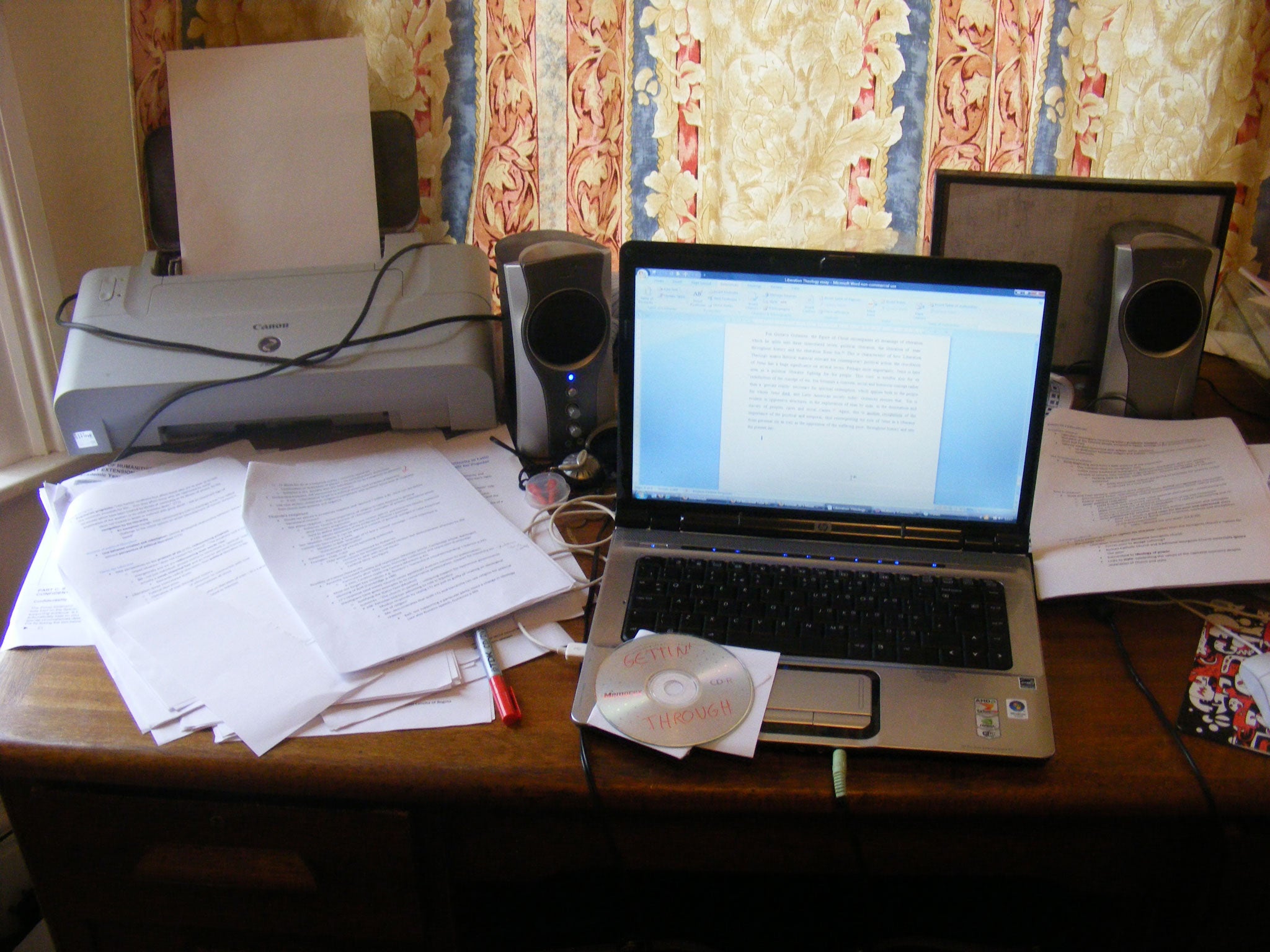Seven essential tips for writing the perfect essay
It's April crunch-time. Here's how not to get crunched

Your support helps us to tell the story
From reproductive rights to climate change to Big Tech, The Independent is on the ground when the story is developing. Whether it's investigating the financials of Elon Musk's pro-Trump PAC or producing our latest documentary, 'The A Word', which shines a light on the American women fighting for reproductive rights, we know how important it is to parse out the facts from the messaging.
At such a critical moment in US history, we need reporters on the ground. Your donation allows us to keep sending journalists to speak to both sides of the story.
The Independent is trusted by Americans across the entire political spectrum. And unlike many other quality news outlets, we choose not to lock Americans out of our reporting and analysis with paywalls. We believe quality journalism should be available to everyone, paid for by those who can afford it.
Your support makes all the difference.Ever since the days of GCSE English, we’ve had a range of fundamental rules to stick to when writing essays. ‘PQC’ (point, quote, comment) was the literature teacher’s favourite, while the "list of three" was supposedly meant to engage readers better than just listing two factors. Unfortunately, your university essays are meant to be a bit more complex than those for GCSE. Still, there is plenty you can do to grab the high marks.
Failing to plan is planning to fail
Before you start any essay it’s crucial to make a plan first. You may have got your question or title sorted which is great, but where do you go from there? Think about the purpose of the essay and what it is you want to get across in the conclusion, and then work out how you’re going to get there with some select points for your main body. Don’t think any of your opinions are too extreme; as long as you have evidence to back it up, you can say what you want - within reason and context of the essay of course.
Nail the intro
As the first part of your essay that will be read, your introduction needs to be clear, concise and compel the reader to carry on. Make sure you highlight the gist of what you will be discussing and sum it off nicely with what your conclusion will be. You’re not writing a story; the reader needs to know what to expect so surprise them with your ability to engage and eloquent discussion technique, not your end result. As a general rule of thumb, introductions should be about 10 per cent of the total word count (so a 300 word introduction for a 3,000 word essay).
Structure is everything
Your ideas may be fascinating but if your structure is all wrong, they may not come across as clearly as you’d like them to be and the reader may miss the point of what you’re saying entirely. Keep your sentences simple where possible and make sure you’ve made your idea clear without having to make your reader work too hard. When you make your plan, try listing each point and decide how many words you’re going to allow yourself to discuss it.
Critic’s choice
For most, if not all, university essays, you will need to incorporate a whole range of critical theories and opinions. Make sure you include the right amount (double check this with your department/professor/a friend), that they are all relevant to your topic and always make your own comment on them. There’s no point in throwing in a random theory or including a really interesting observation by a critic only to have you completely ignore it. Most importantly, include references and a bibliography or face being accused of plagiarism.
What’s the question again?
Even if the ideas are pouring out and you find yourself typing away on a roll, as they say, make sure you constantly remind yourself of the purpose of your essay. Keep referring back to the question or title and make sure you don’t contradict yourself. If you do, include a counterargument or change your title if you must (and you’re allowed to).
Spell check!
Sounds simple enough? Unfortunately there have been several cases where students have submitted work that includes outstanding content but have let themselves down on silly spelling and grammatical errors. More shocking cases have included students using ‘text talk’ in their work – u cnt b doing th@ m8. That spell check button is there for a reason.
Proofread
Everyone hates reading their essays after they’ve finished the torturous experience of writing them up. Sadly, it’s a must. You may find that you’ve made a silly spelling mistake or have referenced the wrong critic for a particular point. Ask someone else to read over your essay as sometimes a fresh pair of eyes can spot mistakes more easily than yours which have probably become bloodshot from staring at a screen for too long.
Join our commenting forum
Join thought-provoking conversations, follow other Independent readers and see their replies
Comments